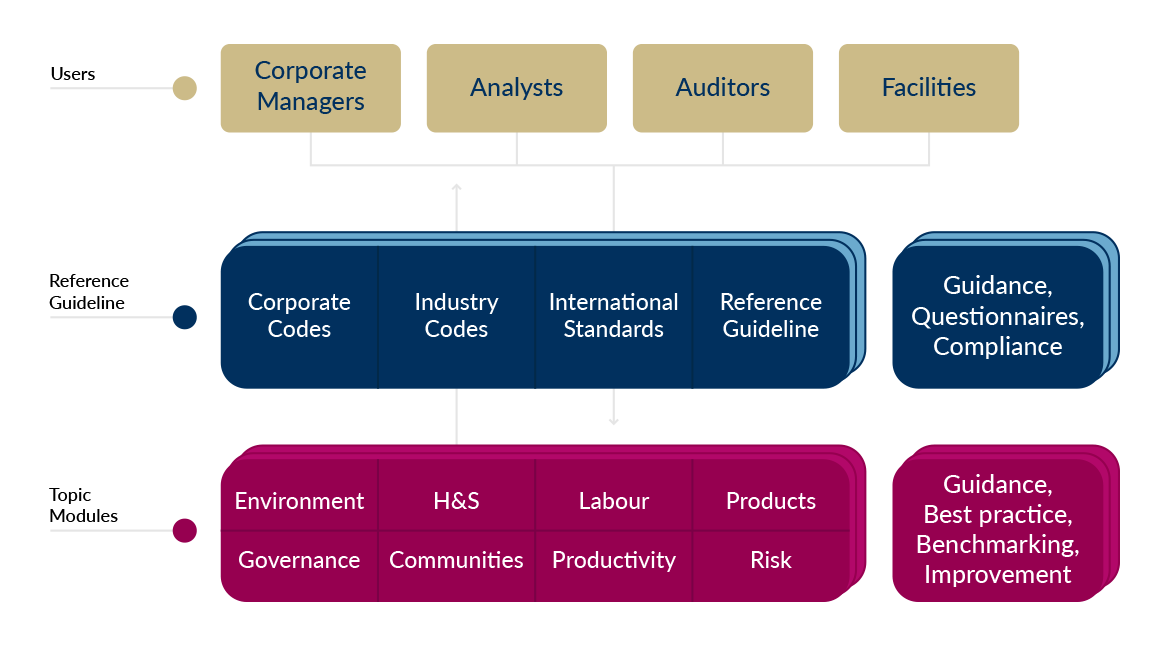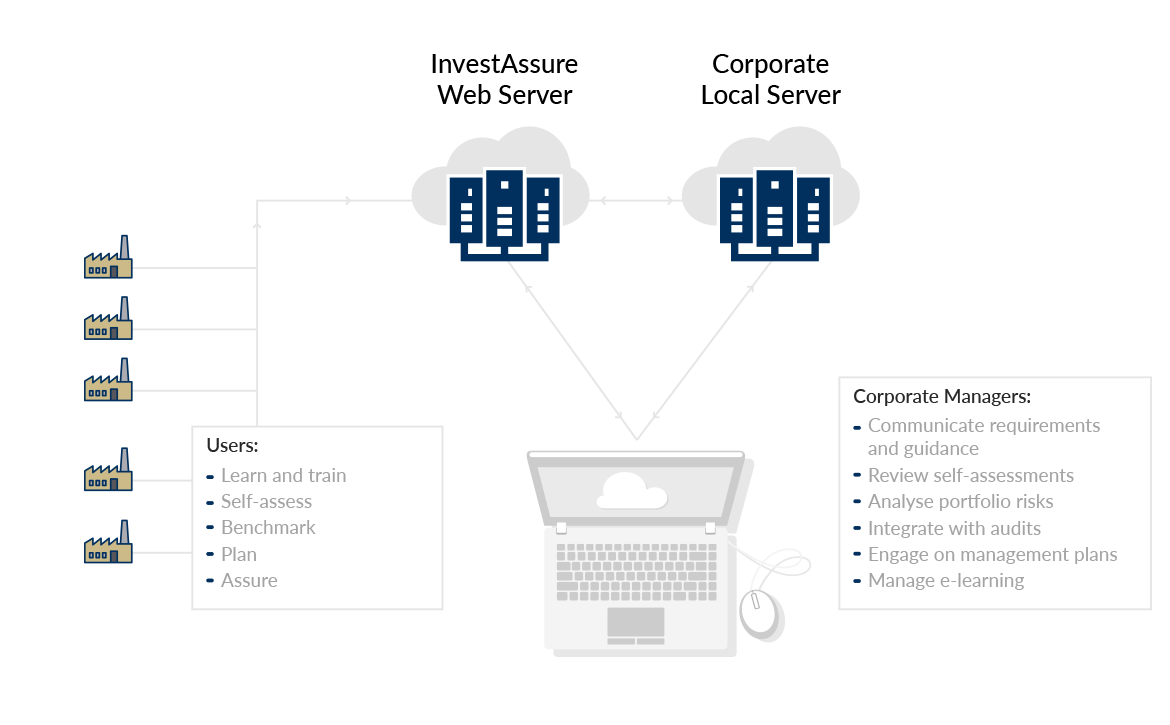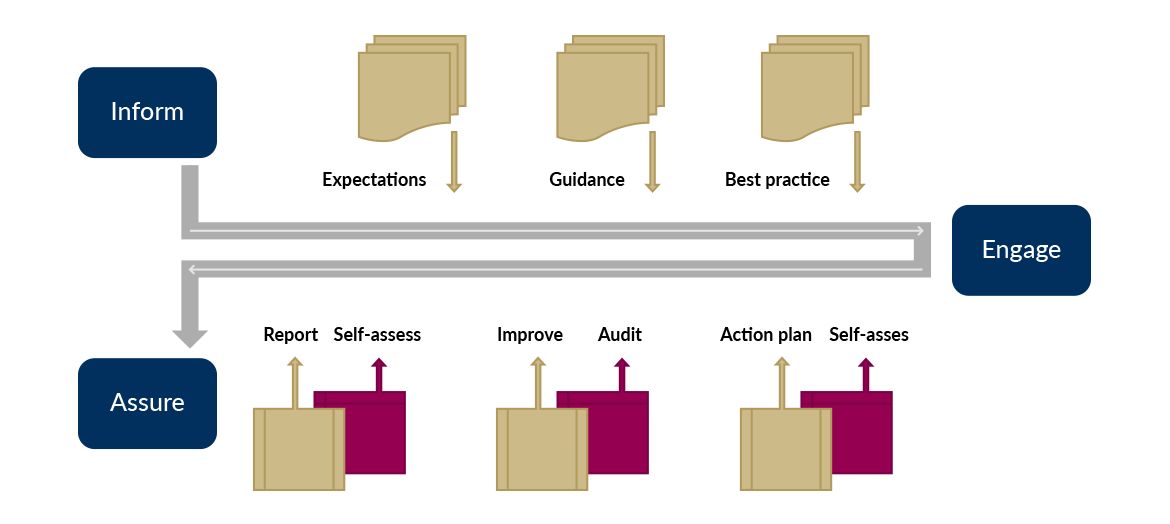SMART ASSURANCE
We surveyed over a hundred companies to help characterise problems with traditional risk management and assurance and then to define a better way, the SMART way.
The old way
PDFs, spreadsheets, emails, consultants, re-invent the wheel, one-off audits, cat and mouse, hit and miss, expensive, behind the curve
The SMART way
web enabled, up-to-date, knowledge sharing, integrated tool, streamlined, secure, ongoing, facility friendly, corporate value, flexible, cost-effective, ahead of the game.
SMART is an online platform for management of responsible business risks. It supports managers, auditors, analysts and planners in delivering sustainable and responsible supply chains , investments and lending portfolios.
SMART can be licensed either with off-the shelf content or it can be customised to meet your own corporate requirements.
Examples of off-the-shelf standards codes and legislation include:
- BES 6002 (Ethical Labour Sourcing)
- ETI Base Code
- GSCP Reference Tools on Supply Chain Management
- Responsible Jewellery Council Code of Practices
- IFC Performance Standards
- IRMA Standard for Responsible Mining
- OECD Due Diligence Guidance for Responsible Business Conduct
- ISO 14001
- OHSAS 18001
- UK Bribery Act
- UK FSA Guide on Financial Crime
- CDC Code of Responsible Investing
- Equator Principles
Many companies have their own responsible business and risk management codes, often built around these and other standards. These can be uploaded to SMART, along with any corresponding guidelines.
SIMPLE, LOGICAL, INTUITIVE
Simple Concept - one platform for multi-user access to support performance improvement, risk management and assurance
Logical Workflow - allows flexible progress from understanding expectations to self-assessments, benchmarking and documentation of improvement plans.
Intuitive Interface - menu driven , embedded questionnaires, access to help, guidance and best practice at every stage.
STANDARD STRUCTURE, CUSTOMISED CONTENT
At its heart, SMART is based on reference modules, the framework which most organisations use as a reference point for setting performance expectations, monitoring compliance and assessing overall progress. These may be corporate or industry codes of practice, international standards, etc.

SINGLE PLATFORM
SMART users can access a single platform to share a simple, logical and intuitive process for management and assurance of risks.
- an online platform for cost-effectively reshaping risk management and assurance across fast-changing, international markets
- enables rapid communication of business policies and codes across networks
- allows up-to-date management guidance, technical support and knowledge sharing
- provides online tools for self-assessment, benchmarking and task management
- facilitates controlled, secure access, online disclosure of compliance status with policies, codes and management standards
- supports corporate managers and others in managing portfolio risks with customised dashboard analytics

SEAMLESS PROCESS
Whether you are concerned with supply chains, investment portfolios or customer bases, risk management entails three linked processes: Inform, Engage, Assure. SMART revolves around these as one seamless process.
Reference modules provide a common point of access to SMART for all users. They can be populated with customised guidance and self-assessment questionnaires. More generic topic or risk modules can provide support for operational performance improvements.

